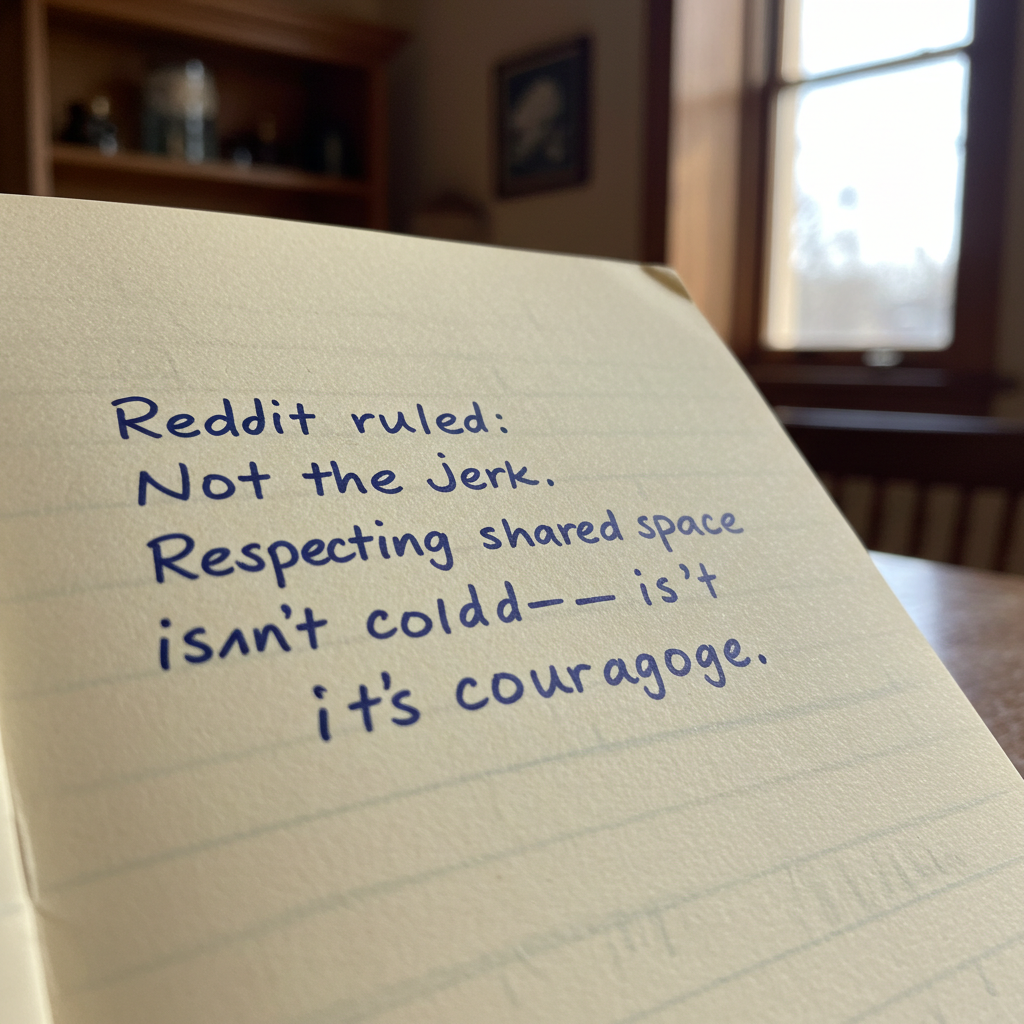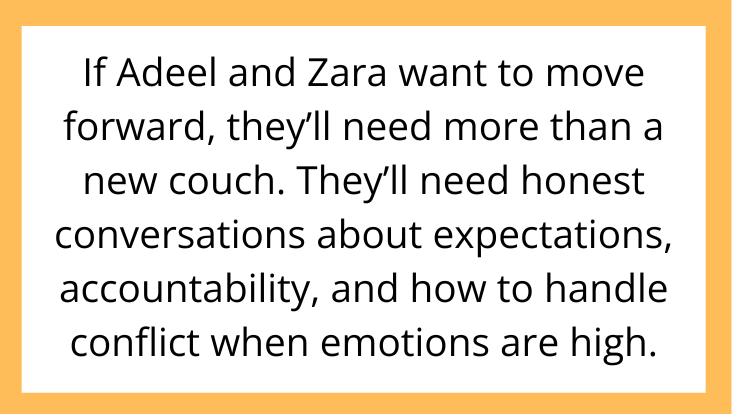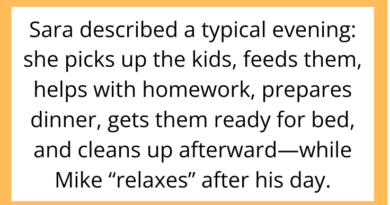AITAH for Asking My Husband to Sleep on the Couch After He Came Home Drunk at 3 AM?
Marriage is full of compromises, but sometimes those late-night decisions reveal deeper cracks. In today’s AITAH-inspired deep dive, a wife draws a boundary after a broken promise—and suddenly finds herself accused of overreacting.
Was her request justified, or did she let emotions rule the night?
Let’s break down the drama, the decisions, and what Reddit had to say.
The Situation: A Promise Broken, Boundaries Crossed

A 34-year-old woman—let’s call her Zara—turned to Reddit’s r/AITAH community with a relatable late-night conflict. Zara and her husband Adeel, 36, had a long-standing agreement: no coming home wasted in the middle of the night.
It wasn’t an unreasonable ask. Adeel had a history of overdoing it at social events. In the past, he’d stumbled in loud, woken the kids, and left the house smelling like alcohol for hours. After several fights, they agreed that if he went out drinking, he’d be home by midnight and in a manageable state.
So when Adeel showed up at 3:12 AM, completely drunk, Zara was livid.
The Confrontation: Couch or Consequences

Zara confronted him at the door. He laughed it off, slurred a few apologies, and tried to climb into bed. That’s when Zara snapped.
“I told him to sleep on the couch,” she wrote. “He reeked, couldn’t stand straight, and I didn’t want to argue in front of our kids if they woke up.”
Instead of complying quietly, Adeel was hurt and defensive. He claimed Zara was treating him “like a dog,” punishing him for simply enjoying a rare night out with his friends.
The next morning, things got worse. Adeel barely remembered the argument, but accused Zara of being emotionally cold and “making a big deal out of nothing.”
Unsure whether she overreacted, Zara asked Reddit: AITAH for kicking my husband out of our bed after he came home drunk?
The Community Responds: Justice for the Couch?

Reddit’s verdict was swift—and nearly unanimous: Not the villain.
“You didn’t ‘kick him out’ of his home,” one user wrote. “You asked him to respect your shared space and your sleep. That’s not cruelty—that’s a boundary.”
Another added: “He broke an agreement. You enforced a consequence. That’s what healthy relationships are built on.”
However, a small minority questioned whether the couch move was passive-aggressive.
“Could you have waited until morning to talk it out?” one commenter asked. “Maybe there was a more compassionate way to handle it.”
Still, the overwhelming majority supported Zara. Enforcing a previously agreed-upon boundary isn’t emotional punishment—it’s accountability.
Boundaries vs. Control: What’s the Difference?

When It’s About Respect
Relationships thrive on mutual respect. If one partner continuously pushes boundaries—like coming home drunk when they’ve promised not to—it sends the message that those boundaries don’t matter.
Zara wasn’t trying to control Adeel’s life. She was trying to create a peaceful home environment, protect her sleep, and keep things stable for their children.
When It’s About Control
If the request had come with ultimatums, name-calling, or emotional manipulation, it might’ve crossed into control. But calmly asking a drunk partner to sleep it off on the couch? That’s a healthy boundary.
The distinction lies in intent—and Zara’s was clearly to defuse a potentially explosive situation.
Deeper Issues: Is It Really About the Couch?

Often, what seems like a petty argument is just the tip of the iceberg.
Zara’s reaction may not have been just about that one night. It might’ve been about all the nights she waited up worrying, or the times promises were made and broken.
Likewise, Adeel’s defensiveness may not have been about the couch—it could reflect guilt, or a feeling of being nagged or judged.
These are the moments when couples either open up and address the root issues—or continue a cycle of anger and silence.
How Could They Have Handled It Better?

Zara:
-
Could have taken a few minutes to de-escalate and express her frustration the next morning instead of immediately confronting him at the door.
-
Might have said something like: “I’m really upset. Let’s talk tomorrow. For now, please sleep on the couch so we can both cool off.”
Adeel:
-
Should have honored their agreement—or at least communicated a delay.
-
Needed to take ownership the next day instead of flipping the blame.
-
Could have offered a sincere apology and a plan to rebuild trust.
Communication: The Real MVP in Marriage

The takeaway here isn’t really about who slept where—it’s about communication and respect.
If Adeel and Zara want to move forward, they’ll need more than a new couch. They’ll need honest conversations about expectations, accountability, and how to handle conflict when emotions are high.
Boundaries in marriage aren’t about punishment. They’re about making space for both people to feel safe, heard, and respected.



